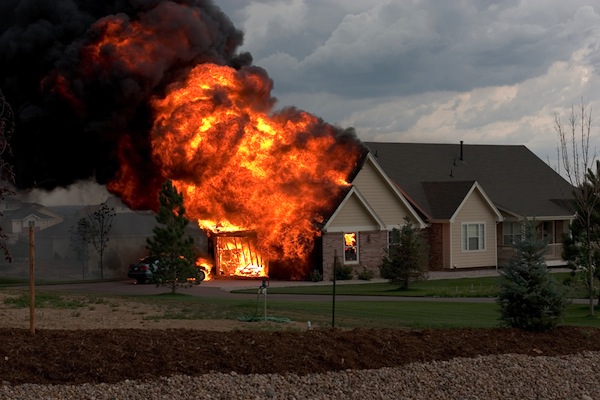How Insurance Adjusters Work:
Insurance adjusters work on behalf of private insurance companies and are responsible for giving quotes for insurance policy applicants and assisting homeowners after they file a claim. Adjusters will assess the “damage value” of a given incident and provide a preliminary estimate of its total cost. This estimate accounts for the cost of clean-up, repair and restoration for a given room or structure to like-new condition.

How Are Insurance Quotes Estimated By The Insurance Adjuster?
When reviewing applicants for insurance coverage, adjusters will look at anything from location to distance from the fire department. The further the home is located from the fire department or city water source, the higher the risk can be for a home sustaining fire and smoke damage. If the home is located in an flood or earthquake prone area, they know to categorize it as high risk.
If the home is located in a high theft area, that could also be a factor in deterimining the amount of coverage they will recommend for your home. Adjusters look at the size of the home, the structure and the building materials to make sure that the coverage is sufficient to cover the claim.
Once the adjuster compiles all of this data, they will look at the applicant’s credit report for late payments and high amounts of potential or open debt that will end up counting against the applicant. It is assumed that those with lots of debt in comparison to their incomes and homeowners located in low-income areas will struggle to pay their premiums.Keeping your credit report clean will have a direct effect on your insurance rates.
Your C.L.U.E. Report which is similar to a credit report but for homeowners, is only accessible to these insurance companies. They rely on it to tell them if you’ve filed any past claims which may also affect your rates. Too many claims and you may even be denied coverage.
What Is The Insurance Adjuster’s Role After A Claim is Filed?
Let’s say a homeowner filed a claim for roof damage from a windstorm for example. An insurance adjuster would first become familiar with your policy coverage and then be dispatched to the home to interview the policyholder about how and when the storm damage occurred. The adjuster would then review the damage by recording details about what items the storm damage has destroyed, to what extent, etc. They would take pictures of the damage then likely call local construction professionals to get an idea of the average repair costs associated with the type of storm damage described by the homeowner.
They may have specific documents they will ask the homeowner for to help them determine if the claim request matches the damage, aware that often homeowners are not prepared with this information. They will ask for photos or other proof of the condition of your home prior to the damage to support their case. The adjuster would compile the data into a report for the insurance company to review. If the insurer reviews the insurance adjuster’s claim report and approves it, the adjuster will present it to the homeowner for approval.
If the homeowner agrees to the adjuster’s assessment and the concluded total monetary value, the homeowner would then receive a check for the total amount which then the homeowner may use to replace, repair or restore the damage as needed. On occasion, particularly in the case of larger claims, a Claims Examiner will be brought in to make sure all the proper procedures were followed by the adjuster, operating as a check and balance or as an audit function.
What Does The Insurance Adjuster Do When A Claimant Isn’t Happy With Their Settlement?
If the homeowner feels the claim settlement is too low, they can also exercise the option to hire a public adjuster to present the information after their own investigation. In this case, the insurance adjuster will communicate directly with the public adjuster who will negotiate on behalf of the homeowner for a larger settlement. If the public adjuster’s submission is denied by the insurance adjuster, often the public adjuster will provide their assessment to an attorney that will legally dispute the claim.
They will first try to re-negotiate and settle on behalf of the client as well but if the insurance company still resists and the public adjuster feels the claimant has a case they will recommend hiring an attorney to represent them against the insurance company. Some public adjusters are also attorneys and can represent the client or they can recommend other attorney’s for the client to research.
When an attorney gets involved, the insurance adjuster and the public adjuster are taken out of the loop and the insurer’s attorneys communicate directly with the client’s attorney until the case or suit is settled. The insurance adjuster and the public adjuster may be called upon to present each of their assessments if an amicable settlement can not be reached and further legal action is taken. Insurance companies would prefer to settle than go to court everytime a claim is filed knowing legal costs can grow quickly out of control. The majority of claims are settled long before they go to court for this reason.